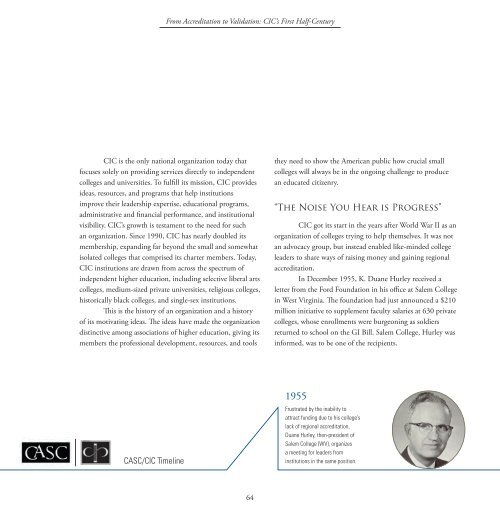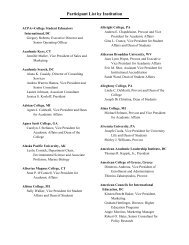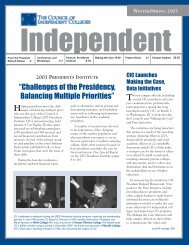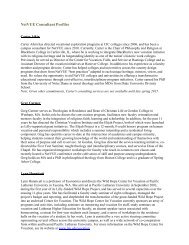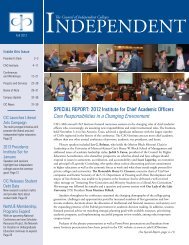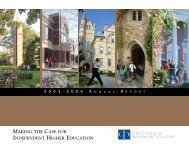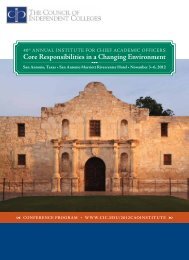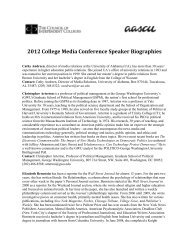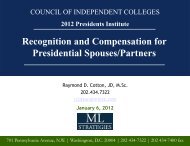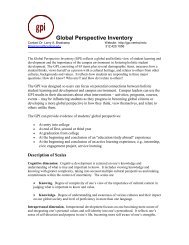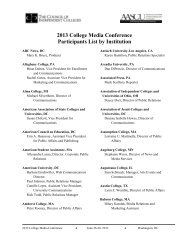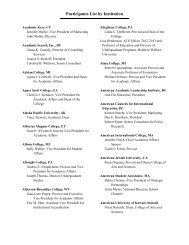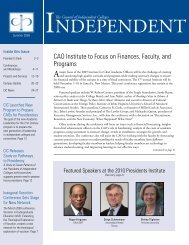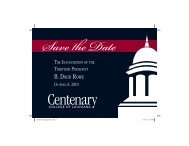Meeting the Challenge: - The Council of Independent Colleges
Meeting the Challenge: - The Council of Independent Colleges
Meeting the Challenge: - The Council of Independent Colleges
Create successful ePaper yourself
Turn your PDF publications into a flip-book with our unique Google optimized e-Paper software.
From Accreditation to Validation: CIC’s First Half-Century<br />
CIC is <strong>the</strong> only national organization today that<br />
focuses solely on providing services directly to independent<br />
colleges and universities. To fulfill its mission, CIC provides<br />
ideas, resources, and programs that help institutions<br />
improve <strong>the</strong>ir leadership expertise, educational programs,<br />
administrative and financial performance, and institutional<br />
visibility. CIC’s growth is testament to <strong>the</strong> need for such<br />
an organization. Since 1990, CIC has nearly doubled its<br />
membership, expanding far beyond <strong>the</strong> small and somewhat<br />
isolated colleges that comprised its charter members. Today,<br />
CIC institutions are drawn from across <strong>the</strong> spectrum <strong>of</strong><br />
independent higher education, including selective liberal arts<br />
colleges, medium-sized private universities, religious colleges,<br />
historically black colleges, and single-sex institutions.<br />
This is <strong>the</strong> history <strong>of</strong> an organization and a history<br />
<strong>of</strong> its motivating ideas. <strong>The</strong> ideas have made <strong>the</strong> organization<br />
distinctive among associations <strong>of</strong> higher education, giving its<br />
members <strong>the</strong> pr<strong>of</strong>essional development, resources, and tools<br />
<strong>the</strong>y need to show <strong>the</strong> American public how crucial small<br />
colleges will always be in <strong>the</strong> ongoing challenge to produce<br />
an educated citizenry.<br />
“<strong>The</strong> Noise You Hear is Progress”<br />
CIC got its start in <strong>the</strong> years after World War II as an<br />
organization <strong>of</strong> colleges trying to help <strong>the</strong>mselves. It was not<br />
an advocacy group, but instead enabled like-minded college<br />
leaders to share ways <strong>of</strong> raising money and gaining regional<br />
accreditation.<br />
In December 1955, K. Duane Hurley received a<br />
letter from <strong>the</strong> Ford Foundation in his <strong>of</strong>fice at Salem College<br />
in West Virginia. <strong>The</strong> foundation had just announced a $210<br />
million initiative to supplement faculty salaries at 630 private<br />
colleges, whose enrollments were burgeoning as soldiers<br />
returned to school on <strong>the</strong> GI Bill. Salem College, Hurley was<br />
informed, was to be one <strong>of</strong> <strong>the</strong> recipients.<br />
CASC/CIC Timeline<br />
1955<br />
Frustrated by <strong>the</strong> inability to<br />
attract funding due to his college’s<br />
lack <strong>of</strong> regional accreditation,<br />
Duane Hurley, <strong>the</strong>n-president <strong>of</strong><br />
Salem College (WV), organizes<br />
a meeting for leaders from<br />
institutions in <strong>the</strong> same position.<br />
64


